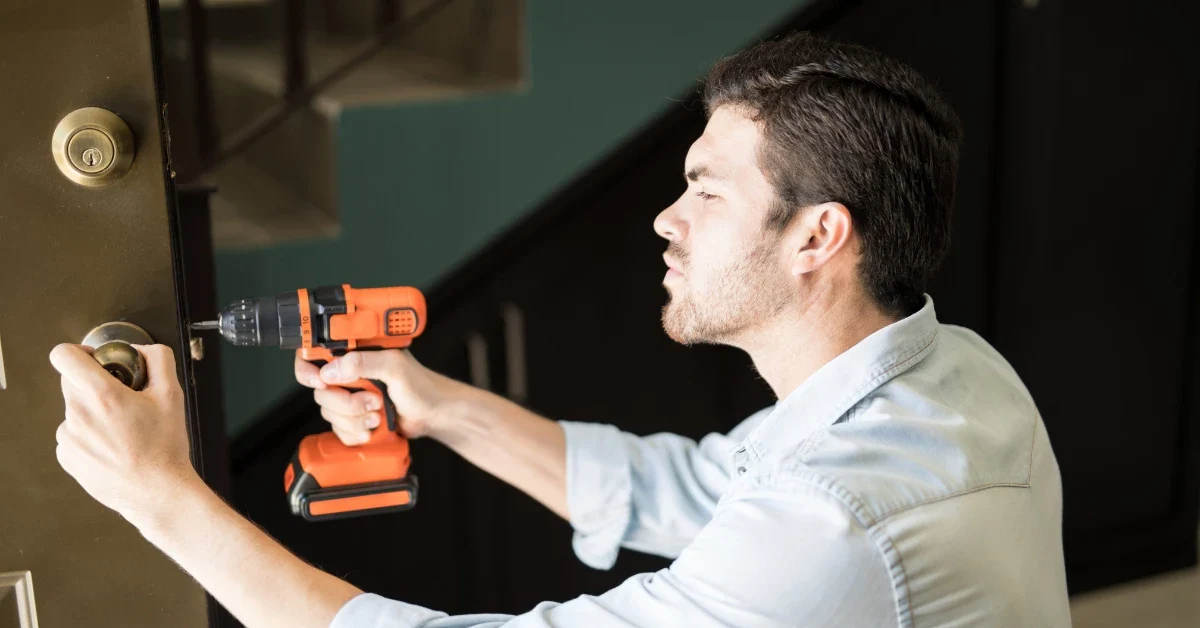In Ontario, tenants generally cannot change locks without the landlord’s permission. Altering locks may require written consent or specific procedures outlined in the lease agreement.
As a tenant, you have certain rights when it comes to your home, but changing the locks without permission is not one of them. In Ontario, the law states that tenants must maintain the property in good condition, but altering the locks is not considered routine maintenance.
The main reason for this is that changing the locks may prevent the landlord from accessing the unit in case of an emergency, which puts both parties at risk. Moreover, if the tenant does change the locks without permission and refuses to provide the landlord with a copy of the new key, it could result in eviction proceedings.

Understanding The Lawful Occupancy And Tenant’S Privacy Rights
The Legal Rights Of The Tenants And Landlords Regarding Occupation Of Rented Property
When a tenant rents a property, it is essential to understand their legal rights and obligations. Similarly, landlords must also know their legal rights in regard to rental properties.
Here are some key points to consider:
- Landlords have the right to collect rent, receive compensation for damages and repairs caused by tenants, and evict non-compliant tenants following legal due process.
- Tenants have the right to a safe and habitable rental property, privacy, and the right to dispute any lease agreement terms they feel are unreasonable or unfair.
Privacy Rights And How It Relates To Changing Locks
Tenant privacy rights are essential and must be respected by landlords during the occupancy of a rental property.
One way tenants can ensure privacy is by changing the locks. However, it’s crucial to know the legal implications of changing locks without permission in Ontario.
Here are some key points to help you understand:
- Before changing the locks, a tenant must obtain written consent from their landlord. Failing to do so could result in lease violation or eviction.
- Even if a tenant has obtained written consent, the tenant must still provide the landlord with a copy of the new key upon request.
- A landlord cannot enter the rental unit without proper notice and/or the tenant’s permission, except in specific emergency situations.
Tenants must understand their legal rights and obligations regarding rental occupancy and privacy rights.
Changing locks without permission in Ontario could result in legal issues and must be done with the landlord’s written consent.
Landlords must respect tenant privacy, uphold their legal obligations, and rent habitable and safe properties.
Can The Tenant Change Locks Without Permission?
Explanation Of Tenant’S Legal Rights Regarding Changing Locks
As a tenant, it’s crucial to understand your legal rights regarding changing the locks on your rental property.
The law in Ontario permits tenants to change the locks of their rental property under some circumstances, including:
- If the landlord agrees to the lock replacement
- If the current locks are damaged
- If someone gains access to the unit unlawfully
- If the locks provide inadequate security.
It is also important for tenants to note that they must provide the landlord with a new key to the replacement lock.
Addressing The Specific Situation In Ontario With Regards To Changing Locks
Ontario’s residential tenancies act provides a framework for landlords and tenants to address matters surrounding rental properties.
The act acknowledges the tenant’s right to change the locks, but it mandates that the tenant must follow the proper procedures. The appropriate process includes:
- Notifying the landlord and getting approval before installing replacement locks.
- Provide the landlord with a new copy of the replacement lock’s key.
- Return the original key to the landlord at the end of the tenancy agreement.
If the tenant does not follow this process, it may result in legal consequences or eviction from the rental unit.
Tenants in Ontario have the right to change their rental property’s locks, but it must be done correctly to avoid legal repercussions.
It is recommended that tenants communicate with their landlords to get the necessary permission before installing replacement locks.
It is also essential for tenants to adhere to the proper procedures outlined in the residential tenancies act to stay legally compliant.
Frequently Asked Questions For Can Tenant Change Locks Without Permission Ontario
Can A Tenant Change Locks Without Permission In Ontario?
Yes, a tenant can change locks but must provide the landlord with a copy of the new key.
Can A Landlord Charge A Tenant For Changing Locks In Ontario?
Yes, the landlord can charge the tenant for changing locks if specified in the lease agreement.
What Should A Tenant Do If The Landlord Disagrees To Changing Locks?
A tenant can apply for a dispute resolution if a landlord disagrees to change locks.
Can A Landlord Enter A Property Without Tenant Permission In Ontario?
No, a landlord must get permission from the tenant or have an emergency to enter the property.
Conclusion
Possible seo-friendly conclusion for the blog post “Can a tenant change locks without permission Ontario”: tenants in Ontario have some legal rights to change locks on their rental unit, but also some obligations to follow the rules set by the landlord and the residential tenancies act.
Before replacing any lock or key, tenants should communicate their intentions and reasons clearly and respectfully to the landlord, ideally in writing, and wait for a reasonable response.
Tenants should also keep copies of all the keys provided by the landlord and return them upon moving out, or face potential financial penalties or eviction.
Landlords, on the other hand, should make sure to include specific terms in the lease agreement regarding locks and keys and educate tenants about them as part of the tenancy.
By understanding the legal context and the practical considerations, both tenants and landlords can avoid unnecessary conflicts and ensure a safer and smoother renting experience.
